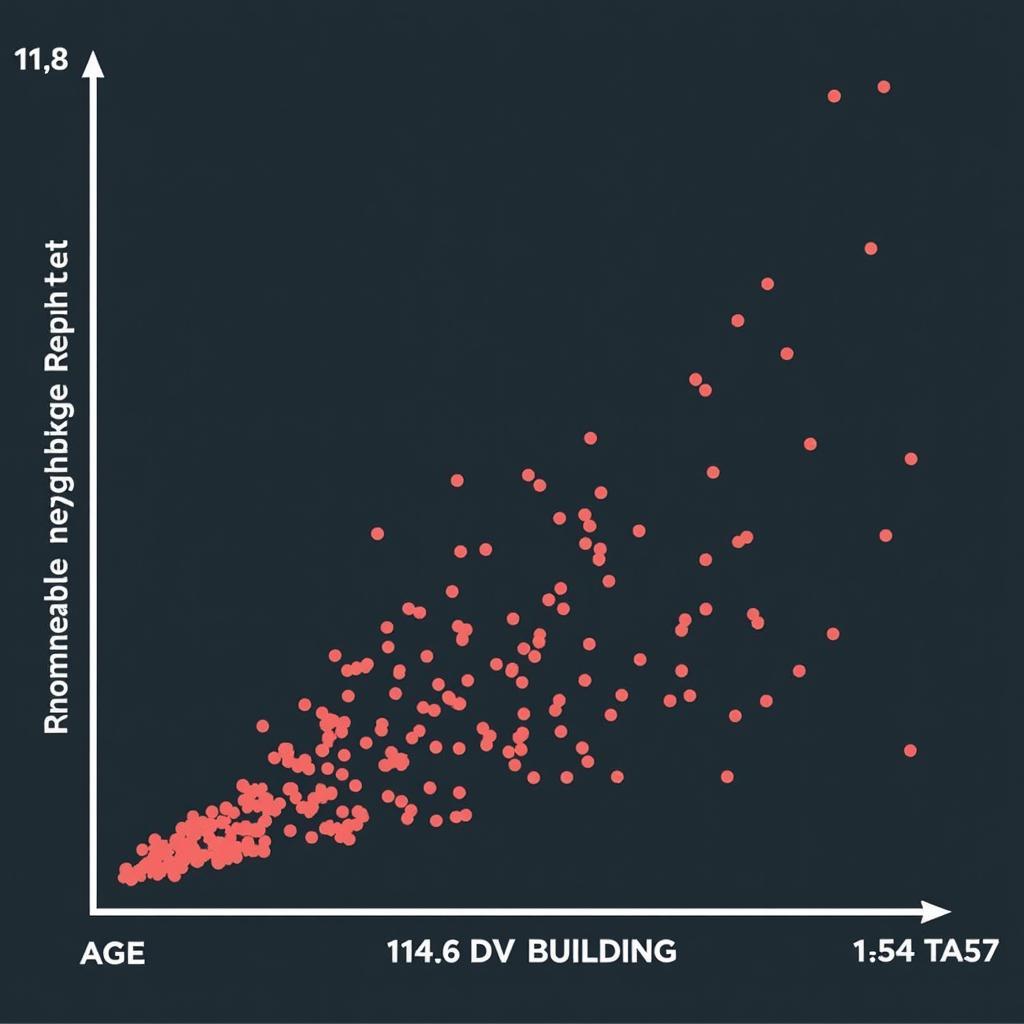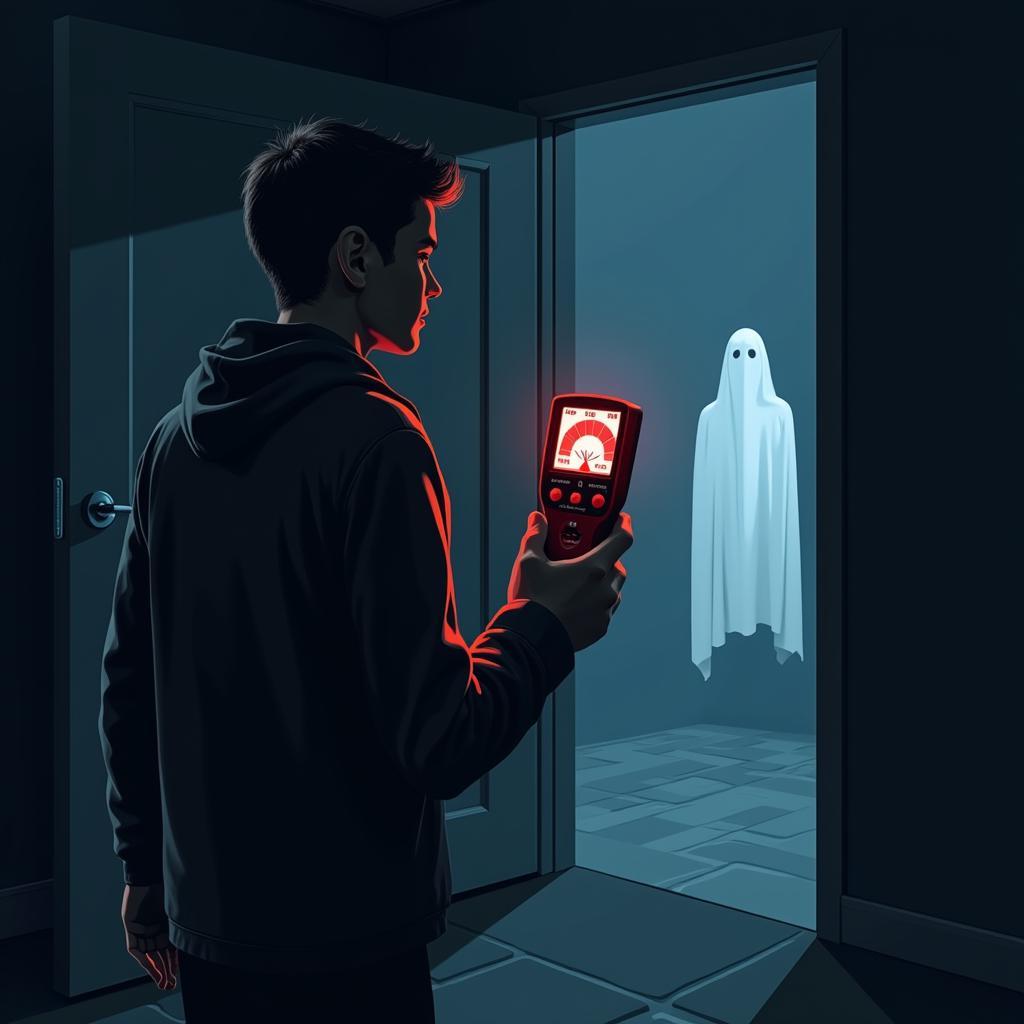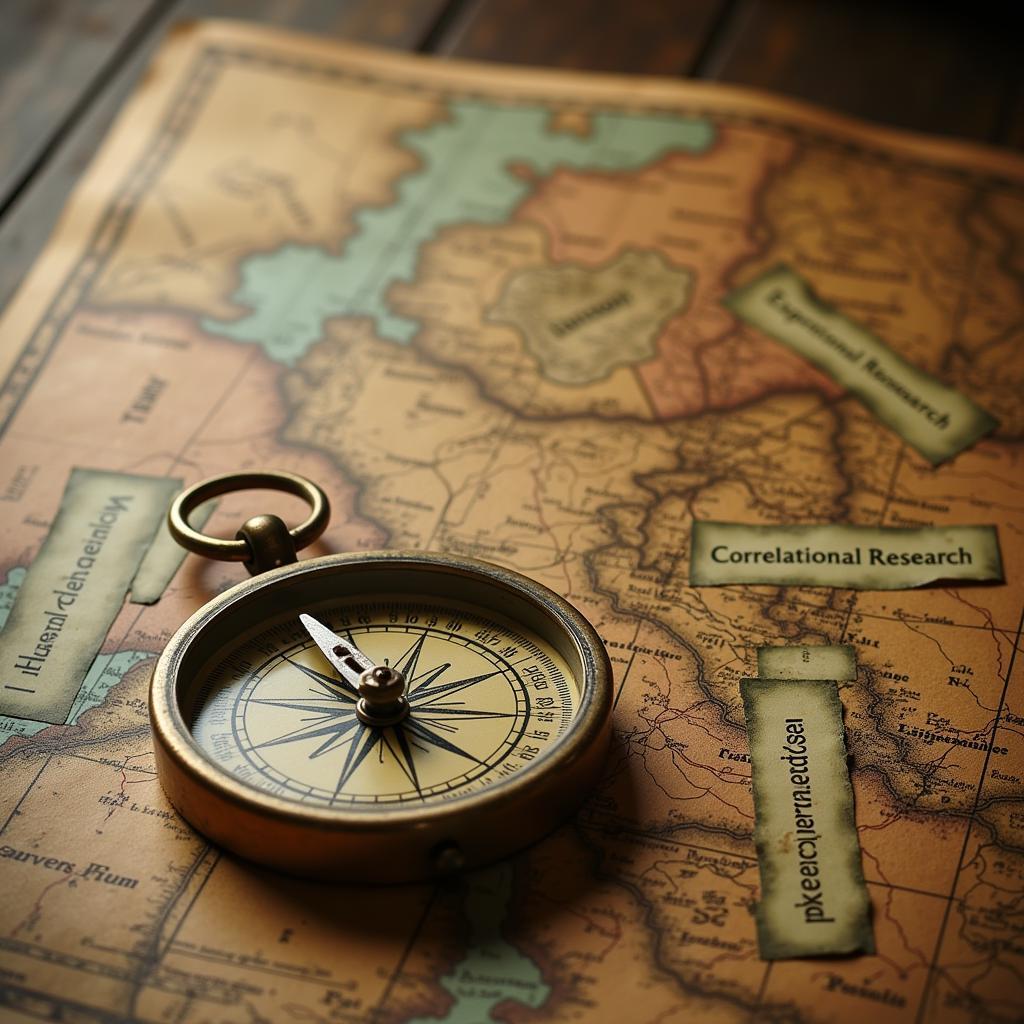Correlational Research Questions sit at the heart of countless investigations into the unknown. Whether we’re exploring the potential connections between psychic abilities and electromagnetic fields or seeking to understand the relationship between hauntings and environmental factors, these questions are the compass guiding our exploration.
Delving into the Essence of Correlational Research Questions
Unlike their experimental counterparts, which seek to establish cause-and-effect relationships, correlational research questions aim to uncover whether a relationship exists between two or more variables. In simpler terms, they help us answer the question: “Are these things connected?”
Imagine, for instance, we’re investigating reports of paranormal activity in a specific location. We might ask, “Is there a correlation between the number of reported ghost sightings and the age of the building?” This question doesn’t suggest that older buildings cause ghost sightings, but rather explores the possibility of a link between the two.
 Correlational Research in Paranormal Investigation
Correlational Research in Paranormal Investigation
Crafting Effective Correlational Research Questions
The key to unlocking the secrets hidden within data lies in framing the right questions. A well-crafted correlational research question should be:
- Clear and concise: Avoid jargon and use language that is easy to understand.
- Measurable: The variables in question should be quantifiable.
- Testable: It should be possible to collect data to explore the potential relationship.
- Specific: Narrow down the focus of your investigation.
For example, instead of asking “Is there a link between the paranormal and human emotions?”, a more effective question would be: “Is there a correlation between reported feelings of unease and fluctuations in electromagnetic fields within allegedly haunted locations?”
 Electromagnetic Fields and Paranormal Activity
Electromagnetic Fields and Paranormal Activity
Navigating the Labyrinth of Correlation vs. Causation
One crucial point to remember when dealing with correlational research questions is that correlation does not equal causation. Just because two variables appear to be related doesn’t mean that one causes the other.
Consider the correlation between ice cream sales and crime rates. Both tend to rise during the summer months. Does this mean that eating ice cream leads to criminal behavior? Of course not! A third variable, such as warm weather, is likely influencing both.
Similarly, finding a correlation between, say, the phases of the moon and the frequency of paranormal experiences doesn’t necessarily mean that one influences the other. Other factors, such as sleep patterns, cultural beliefs, or even confirmation bias, could be at play.
Correlational Research Questions: A Stepping Stone to Deeper Understanding
While correlational research can’t definitively prove cause-and-effect relationships, it plays a vital role in scientific exploration, especially in fields like paranormal research where controlled experiments can be challenging.
By identifying patterns and relationships, correlational research questions provide valuable insights that can:
- Generate new hypotheses and research directions.
- Guide the design of future experimental studies.
- Help us better understand the complexities of the paranormal world.
 Navigating Paranormal Research Methods
Navigating Paranormal Research Methods
Conclusion
In the realm of paranormal research, where mysteries abound and definitive answers are elusive, correlational research questions provide a powerful tool for navigating the unknown. By embracing the principles of careful observation, critical thinking, and rigorous analysis, we can use these questions to illuminate the shadows and gain a deeper understanding of the forces that shape our reality.
FAQs about Correlational Research Questions
-
What is the main difference between correlational and experimental research?
Correlational research examines relationships between variables, while experimental research manipulates variables to establish cause-and-effect.
-
Can you give some examples of correlational research questions in paranormal investigation?
- Is there a relationship between lunar cycles and the frequency of reported paranormal experiences?
- Is there a correlation between EMF fluctuations and the occurrence of EVP recordings?
-
What are some limitations of correlational research?
Correlational research cannot prove causation. It can only highlight potential relationships that require further investigation.
Ready to delve deeper into the world of research methods? Check out our resources on psychology research methods quizlet and explore the fascinating world of AP research questions. You can also find helpful information on how to structure the methods part of a research paper and create a compelling psychology research poster sample.
For those new to research, we recommend starting with a clear research process define to guide your journey.
Need help navigating the complexities of Paranormal Research or have a specific question you’d like to explore? Contact us at:
Phone: 0904826292
Email: research@gmail.com
Address: No. 31, Alley 142/7, P. Phú Viên, Bồ Đề, Long Biên, Hà Nội, Việt Nam.
Our dedicated team is available 24/7 to assist you!